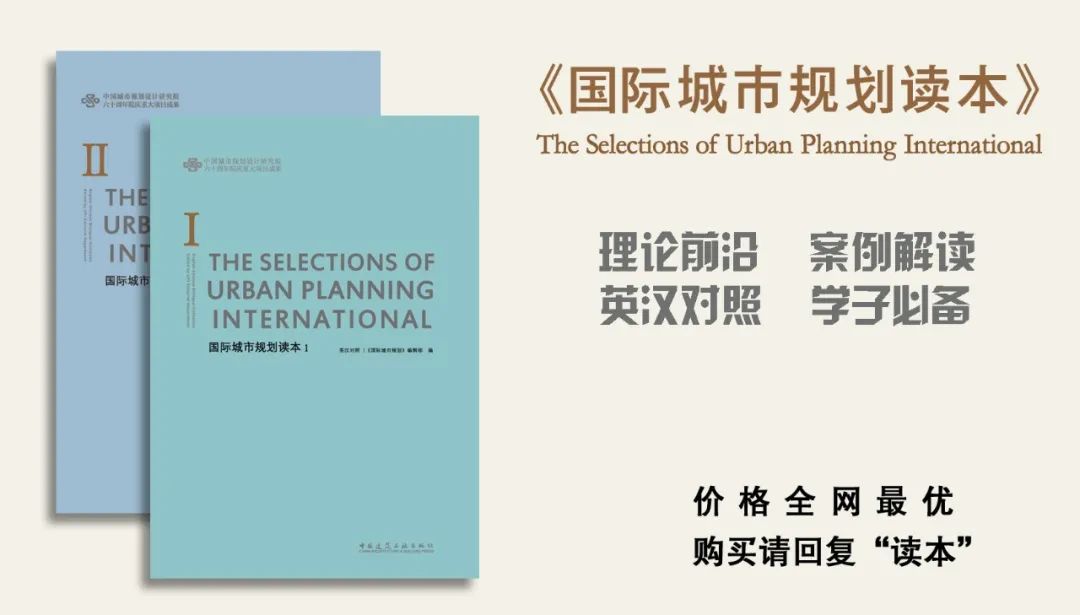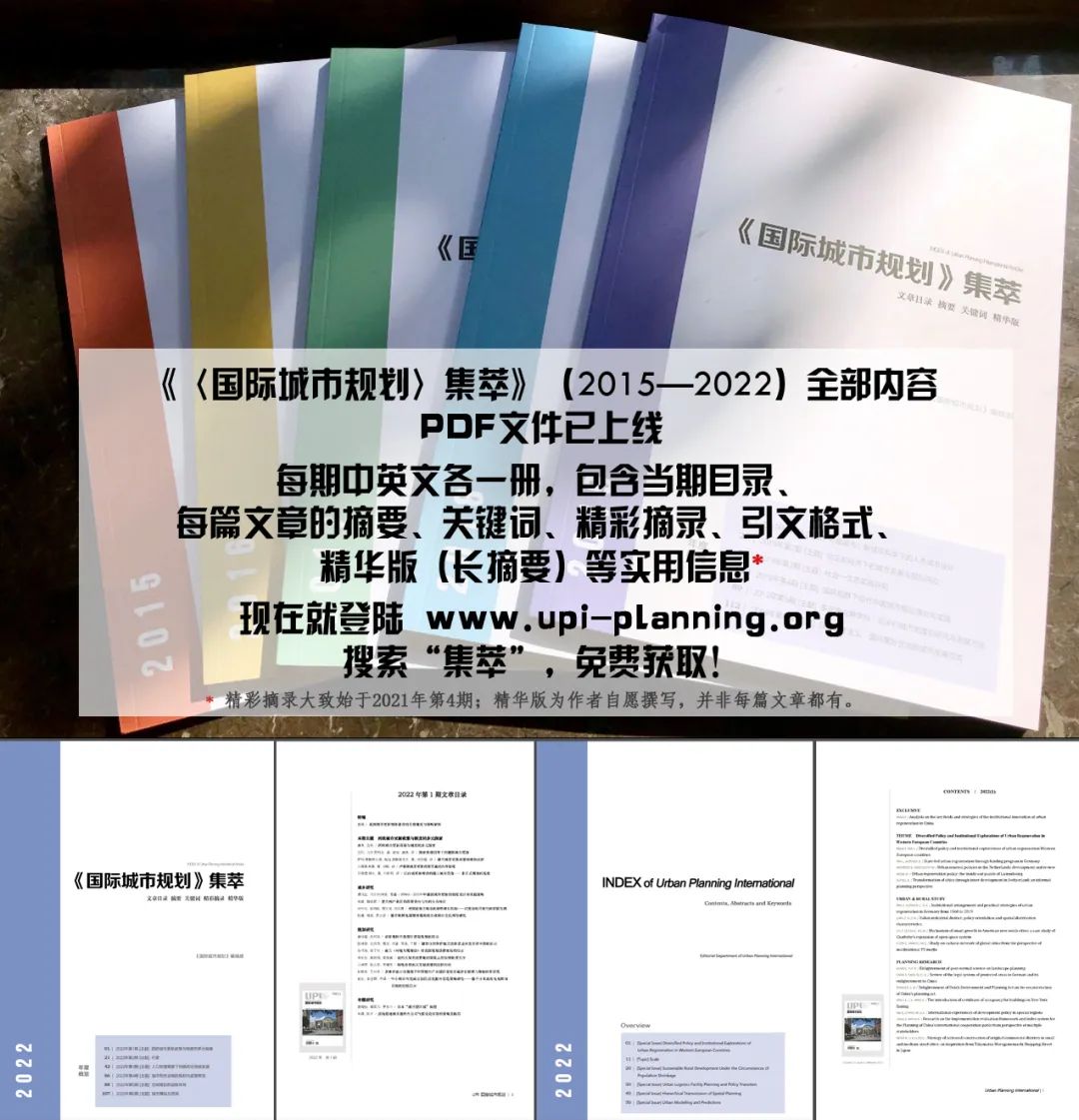为了更好地传播知识,推动期刊国际合作,本刊与《城市研究》(Urban Studies)杂志达成网络合作,不定期推送友刊的精选文章摘要。读者们可以借此了解国际城市研究的新动向,同时学习城市研究领域学术英文的正规表达。欢迎大家批评指正。
Iconic buildings in the making of city identity: The role of aspirational identity artefacts
标志性建筑与城市身份塑造——理想化的身份制品的作用
Alessandra Zamparini(瑞士意大利语区大学)
Gastone Gualtieri(瑞士意大利语区大学)
Francesco Lurati(瑞士意大利语区大学)
Abstract: Iconic buildings are important meaning generators in cities. This study explores the role that iconic buildings in-the-making have in the discursive construction of city identity in public debate. Through the examination of the Locarno PalaCinema case (Switzerland), our study proposes that iconic buildings – during their planning – can serve as aspirational identity artefacts: objects that are mobilised in discourse to inform productive idealisations of city identity by powerful urban actors. Findings identify the mechanisms through which the aspirational artefact and city identity interact in discourse, showing that iconic building projects orient city identity claims, while at the same time city identity meanings taken from collective memory, present understandings and future aspirations are used by actors to infuse the evolving project with meaning. This study aims to contribute to debates in urban planning and city identity by discussing the identity anticipation role of the planning of iconic buildings and how they can be a productive ground to reflect, re-orient and re-claim the unique features of a city’s identity while aspiring to achieve a different future.
摘要:标志性建筑是城市中重要的意义生成器。本研究探讨了在公众的辩论中,正在建设中的标志性建筑在城市身份的话语建构中所起的作用。通过对瑞士洛迦诺帕拉影院(Locarno PalaCinema)案例的考查,我们提出,标志性建筑在其规划过程中可以作为理想身份的人工制品:强大的城市行为者在话语中调动这些对象,解释富有创造性的、理想化的城市身份。我们的研究结果确定了理想的制品和城市身份在话语中相互作用的机制,表明标志性建筑项目为城市身份主张指明了定向,同时,行为者利用从集体记忆中获得的城市身份的意义、当前的理解和未来的愿景赋予不断发展的项目以意义。本研究旨在通过讨论标志性建筑规划在身份预期方面所起的作用,以及它们如何成为反映、重新定位和重新获得城市形象独特特征的富有成效的基础,为城市规划和城市形象的讨论作出贡献,同时致力于实现不同的未来。
Keywords: city identity, iconic buildings, qualitative, urban planning
原文地址:https://doi.org/10.1177/00420980221144157
The ‘In/formal Nocturnal City’: Updating a research agenda on nightlife studies from a Southern European perspective
“非正规/正规夜生活城市”——从南欧角度更新夜生活研究的研究计划
Begoña Aramayona(英国谢菲尔德大学)
Valeria Guarneros-Meza(英国谢菲尔德大学)
Abstract: During the last three decades, nightlife policies in Southern European cities have been directed towards promoting the night as a space–time for tourism-oriented promotion. At the same time, highly precarious, often racialised migrant actors performing informal activities during the night have been (re-)criminalised, put under surveillance and persecuted by public discourse and policy-making. The Covid-19 pandemic has revealed the centrality of ‘the night’ as a fundamental cornerstone for urban governance. However, analysis of how debates on urban nightlife dialogue with frameworks on urban in/formality, security and governance during the day require a more systematic analysis. In this commentary, we call into question the role of the in/formal urban night in ordering neoliberal cities in Southern Europe. By focussing on informal workers during the night as exemplar cases of how in/formal nocturnal governance is produced, we propose an approach to incorporate deeper explorations in future nightlife studies along three avenues: (i) contradictory public discourses encompassed by ‘the night’, and how they are affected by long-term cultural, neo-colonial legacies and ‘darkness’ archetypes; (ii) survival and resistance strategies conducted by precarious/subaltern nocturnal actors during the day and night; and (iii) urban governance arrangements shaping and being shaped by the in/formal night in contemporary ‘Fortress Europe’. The research agenda suggested in this critical commentary aims to be a provocation, not only for nightlife scholars, but also for broader urban studies to take into deeper consideration how the criminalisation of ‘In/formal Nocturnal Cities’ is used in governance processes in contemporary (post-)pandemic cities.
摘要:在过去三十年里,南欧城市的夜生活政策一直致力于将夜晚作为以旅游为导向的时空进行推广。与此同时,在夜间从事非正式活动的高度不稳定的,往往是种族化的移民行为者被(重新)判定为不合法的,受到公共言论和政策制定的监控和迫害。新冠疫情揭示了”夜晚”作为城市治理基石的核心地位。然而,关于城市夜生活的讨论如何与白天的城市非正规性/正规性、安全和治理框架进行对话,还需要进行更系统的分析。在这篇论文中,我们质疑城市夜生活在南欧新自由主义城市秩序中的作用。通过重点关注夜间非正规工作者,并将其视作非正规/正规夜间治理措施实施的范例,我们提出了一种方法,在未来的夜生活研究中沿着以下三个途径进行更深入的探索:(1)“夜晚”所包含的相互矛盾的公共话语,以及它们如何受到长期文化、新殖民主义遗产和”黑暗”原型的影响;(2)不稳定的/底层夜生活参与者在白天和夜晚所采取的生存和抵抗策略;以及(3)在当代“欧洲要塞”中,影响非正规/正规夜晚,并受其影响的城市治理安排。本论文提出的研究计划不仅是对夜生活研究学者,也是对更广泛的城市研究的一种挑衅,尝试更深入地思考在当代(后)疫情城市的治理过程中,如何对“非正规/正规夜生活城市”进行“定罪”。
Keywords: inequality, informality, governance, migration, nightlife, precarious workers, race/ethnicity
关键词:不平等、非正规性、治理、迁移、夜生活、不稳定工人、种族/民族
原文地址:https://doi.org/10.1177/00420980231188512
Storage city: Water tanks, jerry cans, and batteries as infrastructure in Nairobi
Moritz Kasper(德国多特蒙德工业大学)
Sophie Schramm(德国多特蒙德工业大学)
Abstract:Against the ‘normative concept of the networked city’, urban studies and infrastructure research have seen a shift towards investigations beyond the network that engage with the post-networked city, heterogeneous infrastructures, and other situations ‘on, off, below and beyond’ the grid, especially in southern cities. Expanding on debates around southern urbanisms and their socio-technical infrastructures, we explore a ubiquitous yet rarely discussed element of contemporary urban infrastructures: storage. In Nairobi, a city shaped by infrastructural heterogeneity and uncertainty, households of all backgrounds and sizes store water and electricity within various constellations of actors, practices and artefacts. We show how domestic storage, its artefacts and practices cumulate in a storage city that is not opposed to a networked or post-networked city but rather entangled with it. We present domestic storage as crucial infrastructure to the socio-technical functioning of Nairobi, discuss diverse storage artefacts and practices, and highlight how a focus on storage can contribute to re-imaginings of infrastructural articulations beyond networks and flows.
摘要:与“网络化城市的规范概念”相反,城市研究和基础设施研究已经转向超越网络的调查,这些调查涉及后网络化城市、异构基础设施以及“联网、断网、网络下方和网络之外”的其他情况,尤其是在南方城市。我们对南方城市化及其社会技术基础设施进行了进一步的讨论,探讨了当代城市基础设施中一个普遍存在但很少被讨论的元素:存储。内罗毕是一个由基础设施异质性和不确定性塑造的城市,各种背景和规模的家庭储存水和电的方式因为参与者、做法和产品的不同而各异。我们展示了家庭存储、其存储用品和实践是如何累积形成一个存储城市的。但这个存储城市与网络化或后网络化城市并不是对立的,而是与其纠缠在一起的。我们将家庭存储作为内罗毕社会技术功能的重要基础设施,讨论各种存储用品和实践,并强调对存储的关注如何有助于重新构想网络和流动之外的基础设施衔接。
Keywords: electricity, infrastructure, Nairobi, storage, water
原文地址:https://doi.org/10.1177/00420980221144575
Progressive cities: Urban–rural polarisation of social values and economic development around the world
进步的城市——世界各地社会价值观和经济发展的城乡两极分化
Javier Terrero-Davila(英国伦敦政治经济学院)
Abstract: In contrast to the conservative values of rural populations, cities are often seen as bulwarks of more tolerant, liberal and progressive values. This urban–rural divide in values has become one of the major fault lines in Western democracies, underpinning major political events of the last decade, not least the election of Donald Trump. Yet, beyond a small number of countries, there is little evidence that cities really are more liberal than rural areas. Evolutionary modernisation theory suggests that socio-economic development may lead to the spread of progressive, self-expression values but provides little guidance on the role of cities in this process. Has an urban–rural split in values developed across the world? And does this gap depend on the economic development of a country? We answer these questions using a large cross-sectional dataset covering 66 countries. Despite the inherent challenges in identifying and operationalising a globally-consistent definition of what is ‘urban’, we show that there are marked and significant urban–rural differences in progressive values, defined as tolerant attitudes to immigration, gender rights and family life. These differences exist even when controlling for observable compositional effects, suggesting that cities do play a role in the spread of progressive values. Yet, these results only apply at higher levels of economic development suggesting that, for cities to leave behind rural areas in terms of liberal values, the satisfying of certain material needs is a prerequisite.
摘要:与农村人口保守的价值观不同,城市通常被视为更宽容、更自由、更进步的价值观的堡垒。这种价值观的城乡分化已成为西方民主国家的主要断层之一,构成了过去十年中所发生的重大政治事件的基础,尤其是唐纳德·特朗普的当选。然而,除了少数国家之外,几乎没有证据表明城市真的比农村地区更自由。进化现代化理论表明,社会经济发展可能导致进步主义的、自我表达的价值观的传播,但对城市在这一过程中所起作用提供的指导很少。世界范围内是否真的出现了城乡价值观的分化?这种分化是否由一个国家的经济发展水平决定?我们利用一个大型的横截面数据集来回答这些问题,数据涉及66个国家/地区。尽管很难在全球范围内对“城市”确定全球统一的定义,但我们的研究表明,在进步主义价值观(即对移民、性别权利和家庭生活所持有的宽容态度)方面,城乡之间存在显著差异;即使剔除可观察到的构成效应,这些差异也存在,这表明城市确实在进步主义价值观的传播中发挥了作用。然而,这些结果仅适用于经济发展水平较高的地区,这表明,在满足某些物质需求的先决条件下,城市在自由主义价值观方面才会超越农村地区。
Keywords: cities, economic development, modernisation, progressive values, urban–rural polarisation
关键词:城市,经济发展, 现代化, 进步主义价值观, 城乡两极分化
原文地址:https://doi.org/10.1177/00420980221148388

Urban Studies文章精选(208-215)
排版 | 顾春雪
推介 Urban Studies 期刊的最新文章和城市研究的最新动态
搭建中国城市研究学者交流切磋的学术平台
原文始发于微信公众号(国际城市规划):期刊导航 | Urban Studies文章精选(216-219)








 规划问道
规划问道










